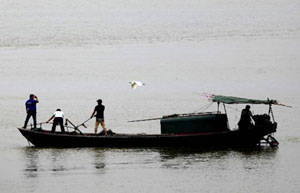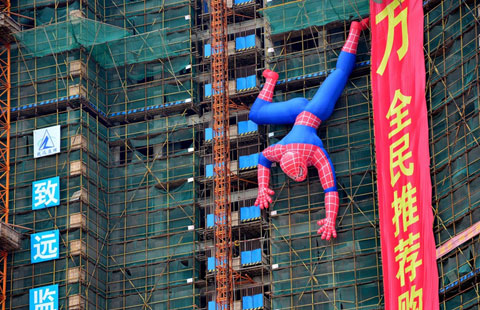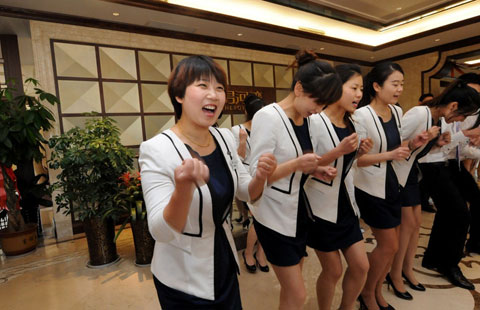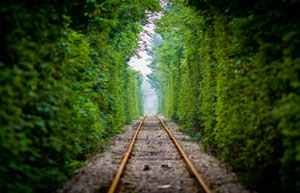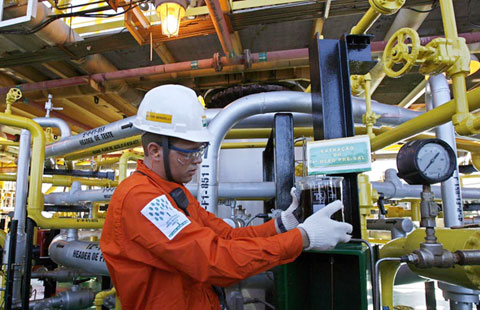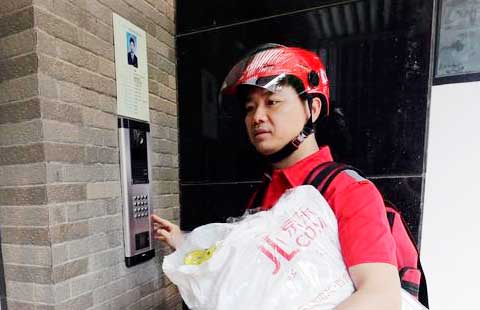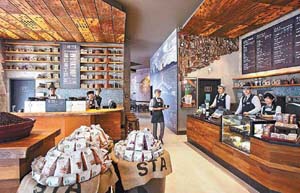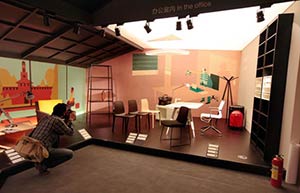Moutai looks to spread reach in China
By Qiu Bo in Beijing and Jia Tingting in Guiyang (China Daily) Updated: 2014-06-21 07:17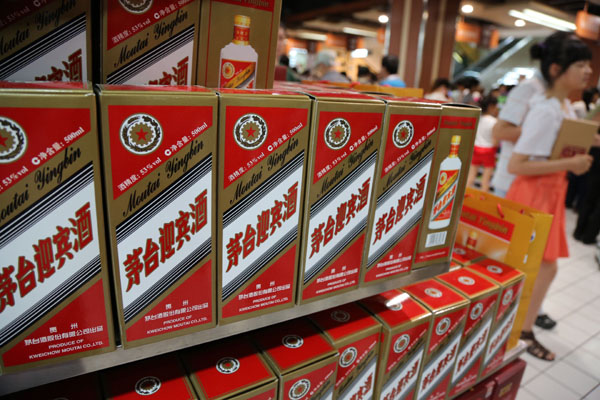 |
|
Some bottles of Moutai are displayed at a supermarket in Xuchang, Henan province, May 25, 2014.[Geng Guoqing/for china daily] |
After President Xi Jinping took office in 2013, China's new leadership embarked on a campaign to eradicate corruption and cut extravagant spending.
The brand's top seller, Flying Moutai, which has 53 percent alcohol by volume, has slashed prices recently. A bottle that cost over 2,000 yuan in 2011 was priced at 1,200 yuan last year and even less now in the market.
"Moutai is just not as profitable as it used to be," said Li Ding, a 25-year-old dealer in Guizhou.
"Moutai is now priced at 900 yuan a bottle, after the government's curbs on lavish spending," said Li, who began to sell Moutai two years ago.
"Dealerships' profit margin has fallen, but it won't stop new dealers from hopping on board," Long said. "The brand still has its irreplaceable influence."
"Moutai is grabbing more market share by increasing stores," said Wang Wenming, a 50-year-old dealer in Sichuan with Kweichou Moutai Group.
"Profit margins might be diluted, but Moutai's market expansion will generate a bigger customer base, which in turn will boost sales," said Wang.
On the other hand, reaching this year's sales goal is also seen as a major step by companies to accelerate Moutai's distribution, said Xia Linlin, an expert in the industry. "Don't forget they have overloaded inventory to clear out."
Many luxury liquor brands have been struggling this year. Kweichou Moutai lately announced it will adjust its sales target to a 4 percent year-on-year growth this year, the lowest in the past five years.
In 2013, sales revenue for high-end liquor showed a year-on-year decrease of 63.56 percent, while only Moutai maintained a growth of 16.88 percent, according to the China Alcoholic Drinks Association.
- China needs sustainable growth: IMF Secretary
- Fishing moratorium on Poyang Lake ends
- RQFII program expanded to France
- ZTE turns the tables on Vringo with antitrust complaint in Europe
- CNPC runs into accounting woes
- Nation's wealthy ranks fourth globally
- Hedge funds may benefit from financial reforms
- Chang'an Ford focus on Western China with 88 new dealers
